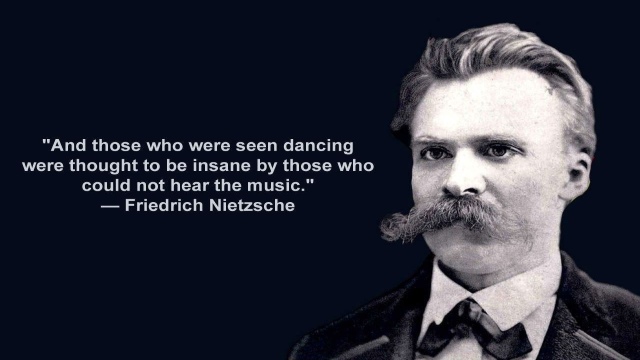
Nietzsche was a German philosopher, essayist, and cultural critic. His writings on truth, morality, language, aesthetics, cultural theory, history, nihilism, power, consciousness, and the meaning of existence have exerted an enormous influence on Western philosophy and intellectual history.Nietzsche spoke of “the death of God,” and foresaw the dissolution of traditional religion and metaphysics. Some interpreters of Nietzsche believe he embraced nihilism, rejected philosophical reasoning, and promoted a literary exploration of the human condition, while not being concerned with gaining truth and knowledge in the traditional sense of those terms.
However, other interpreters of Nietzsche say that in attempting to counteract the predicted rise of nihilism, he was engaged in a positive program to reaffirm life, and so he called for a radical, naturalistic rethinking of the nature of human existence, knowledge, and morality. On either interpretation, it is agreed that he suggested a plan for “becoming what one is” through the cultivation of instincts and various cognitive faculties, a plan that requires constant struggle with one’s psychological and intellectual inheritances.
Nietzsche claimed the exemplary human being must craft his/her own identity through self-realization and do so without relying on anything transcending that life—such as God or a soul. This way of living should be affirmed even were one to adopt, most problematically, a radical vision of eternity, one suggesting the “eternal recurrence” of all events. According to some commentators, Nietzsche advanced a cosmological theory of “will to power.” But others interpret him as not being overly concerned with working out a general cosmology.
Questions regarding the coherence of Nietzsche’s views–questions such as whether these views could all be taken together without contradiction, whether readers should discredit any particular view if proven incoherent or incompatible with others, and the like–continue to draw the attention of contemporary intellectual historians and philosophers.
Childhood & Early Years
- Friedrich Nietzsche was born on 15 October 1844, in a small town called Röcken, located near Leipzig, in the Prussian Province of Saxony. His father, Carl Ludwig Nietzsche, was a Lutheran pastor in Röcken. His mother’s name was Franziska nee Oehler.
- Friedrich was the eldest of his parents’ three children. Next to him was his sister, Therese Elisabeth Alexandra Nietzsche, who in later years became anti-Semitic. The third sibling was a brother named Ludwig Joseph.
- In 1849, Friedrich’s father, Carl Ludwig died from some kind of brain disorder. Friedrich’s younger brother Ludwig Joseph also passed away in 1851. Franziska, Friedrich and Elisabeth now left Röcken to live with Franziska’s mother in Naumburg. Two of Franziska’s unmarried sisters-in-law also lived in the same house.
- In 1854, Friedrich he was admitted to Domgymnasium in Naumburg, studying there till 1858. Thereafter, he entered ‘Schulpforta’, an internationally famous boarding school, on scholarship. According to most scholars he got the admission because his father, a pastor, was no more.
- At Schulpforta, apart from studying classical languages like Greek, Latin, Hebrew, French and German, he also studied religion, history, natural sciences and mathematics. Moreover, he became acquainted with works of non-conformist writers through private reading.
- During this period, he seemed to have suffered from certain confusion. In 1862, he wrote an essay entitled, ‘Fate and History’, arguing that historical research did not corroborate with the central teachings of Christianity. At the same time, he was profoundly affected by ‘Life of Jesus’, written by David Strauss.
- In September 1864, Friedrich Nietzsche graduated from school, receiving A1 in Religion and German, subsequently entering the University of Bonn with theology and classical philology as his subjects. Although his initial aim was to become a minister like his father, after one semester, he lost faith in God and gave up theology.
- In 1865, Nietzsche began to study philology with Friedrich Wilhelm Ritschl. But at the end of his second semester, when Ritschi was forced to resign from his post and move to Leipzig, Nietzsche also moved with him. Prospering under Ritschl’s tutelage, he soon began to publish number of papers.
- Around this time, he began to study the works of Arthur Schopenhauer, which awakened in him an interest in philosophy. ‘History of Materialism’, written by Friedrich Albert Lange, which he first read in 1866, also had tremendous impact on him.
- In October 1867, Nietzsche signed up for one year voluntary military service. In March 1868, he hurt himself badly, requiring several months of rest. In October 1868, while on an extended leave, he once again concentrated on his studies. This was also the period, he first met composer Richard Wagner.